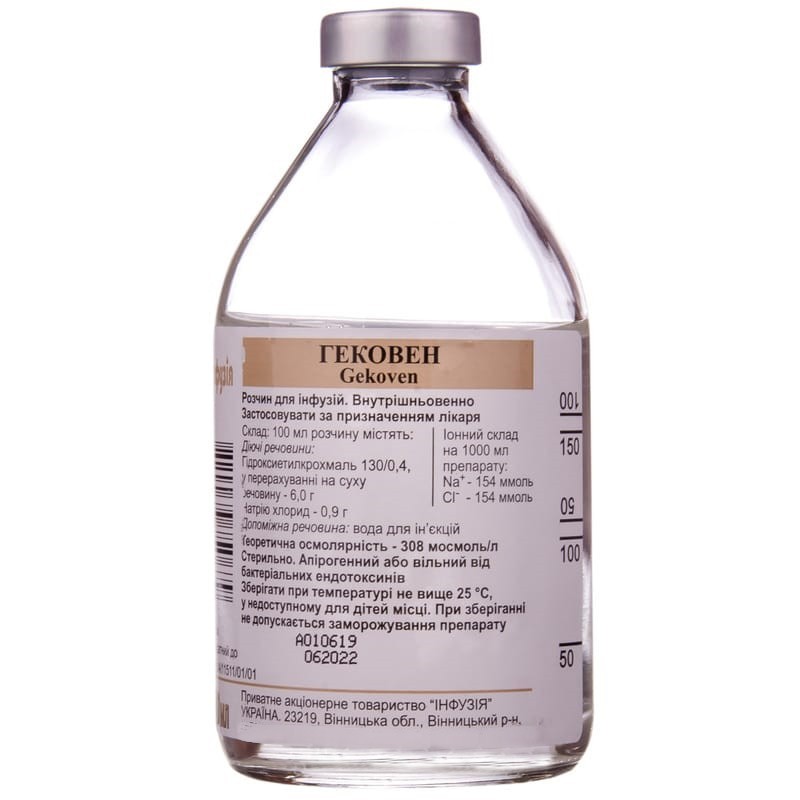



 Secure and encrypted payment processing
Secure and encrypted payment processing We ship to over 40 countries including the USA, UK, Europe, Australia and Japan
We ship to over 40 countries including the USA, UK, Europe, Australia and Japan Guaranteed refund or reship if you haven't received your order
Guaranteed refund or reship if you haven't received your orderGecoven infusion solution is indicated for hypovolemia caused by acute blood loss, in cases where the use of crystalloid alone is considered insufficient.
Active substances: hydroxyethyl starch 130 / 0.4; sodium chloride;
100 ml of the solution contains: hydroxyethyl starch 130 / 0.4 (average molecular weight 130,000, degree of molar substitution 0.4) in terms of dry substance 6.0 g, sodium chloride 0.9 g;
Excipient: water for injection.
Sepsis, severe liver disease; known increased individual sensitivity to hydroxyethyl starch; clinical diseases where volume overload is a potential problem, especially in the case of pulmonary edema and congestive heart failure; dehydration; existing violations of coagulation and blood coagulation; intracranial bleeding; renal failure or renal replacement therapy; severe hypernatremia or severe hyperchloremia.
It is contraindicated in patients with burns, with transplanted organs and critically ill patients because of the risk of kidney damage and death.
For intravenous administration only.
The daily dose and rate of infusion depend on the amount of blood loss, maintenance or restoration of hemodynamics, and hemodilution (dilution effect). Gecoven can be re-entered within a few days.
The first 10–20 ml of the drug should be administered slowly. The patient should be closely monitored due to possible anaphylactic / anaphylactoid reactions.
Gecoven can be used during pregnancy only in cases where the expected benefits of treatment outweigh the possible risk to the fetus.
The use of HES for adolescents from 12 years of age is confirmed by the data of relevant controlled studies of the drug in adults.
Gecoven does not affect the reaction rate when driving or working with other mechanisms.
As with the introduction of other plasma-replacing solutions, an overdose of Hekoven can overload the circulatory system (for example, pulmonary edema). In this case, the infusion should be stopped immediately and, if necessary, a diuretic should be administered.
Cases of Hekovens interaction with other drugs are unknown.
During administration of the drug, serum amylase levels may temporarily increase, which may affect the diagnosis of pancreatitis.
At high doses, the effects of dilution can lead to a decrease in the level of coagulation factors and other plasma proteins and a decrease in hematocrit.
Store at a temperature not exceeding 25 ° C out of the reach of children.
During storage, do not allow freezing of the drug.
Shelf life is 3 years.